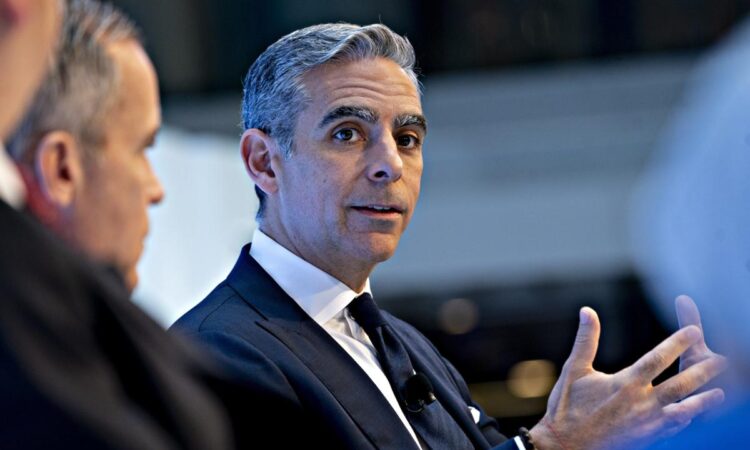The Crypto Winter will last through 2023 and maybe 2024, predicts PayPal and Meta alum David Marcus

David Marcus may lead a Bitcoin-focused company, but he doesn’t see the Crypto Winter ending anytime soon.
Marcus was CEO of PayPal and also ran crypto efforts at Facebook (now Meta). He currently leads Lightspark, a Los Angeles startup creating payment infrastructure by building upon Bitcoin’s capabilities.
In a blog post published Friday on Medium, Marcus predicted among other things how the crypto sector will fare in 2023. Crypto speculators hoping for a turnaround next year will be disappointed by his outlook.
Crypto ‘ugliness’ on display
First, Marcus looked back on 2022, noting the FTX bankruptcy. The $32 billion cryptocurrency exchange had established itself as a leader in the field, having enlisted star athletes like Tom Brady and other celebrities to bolster its image. Its collapse last month shook confidence in the crypto sector and spurred calls for tighter regulation.
FTX founder Sam Bankman-Fried has been charged by U.S. authorities with eight criminal violations—ranging from wire fraud to money laundering to conspiracy to commit fraud—and is expected to serve a lengthy prison sentence.
“For crypto, it was an even more challenging year,” wrote Marcus. “We saw all the ugliness of the earlier years of Wall Street’s greed repeat itself with the rapid house-of-cards style collapse of many firms, the most egregious and shocking one being FTX capping the year with an additional and very unnecessary dose of drama.”
The FTX collapse added to an already miserable Crypto Winter. Year-to-date, Bitcoin and Ethereum, the two leading cryptocurrencies, are down over 60 percent, and shares of crypto exchange Coinbase have fallen by about 85 percent.
Crypto recovery will take years
But Marcus sees little relief ahead.
“We won’t exit this ‘crypto winter’ in 2023, and probably not in 2024 either,” he wrote. “It’ll take a couple of years for the market to recover from the abuse of unscrupulous players, and for responsible regulation to come through.”
Coinbase CEO Brian Armstrong also noted the industry’s bad actors earlier this month, telling attendees at a crypto founder’s summit: “We have to kind of come to terms as an industry with the fact that, I think our industry is attracting a disproportionate share of fraudsters and scammers.”
As for crypto regulations, Senator Sherrod Brown, chair of the Senate banking committee, said a few weeks ago that “crypto doesn’t get a free pass because it’s bright and shiny…Things that look and behave like securities, commodities, or banking products need to be regulated and supervised by the responsible agencies who serve consumers.”
Marcus noted that consumer trust will “take a few years to rebuild, but ultimately I believe this will prove to be a beneficial reset for legitimate industry players over the long run.”
He added, “In crypto, years of greed will make room for real-world applications. The years of creating a token out of thin air and making millions are over. The music has stopped. We’re back to our regular programming of having to create real value and solving real world problems.”
This story was originally featured on Fortune.com
More from Fortune:
People who skipped their COVID vaccine are at higher risk of traffic incidents
Elon Musk says getting booed by Dave Chapelle fans ‘was a first for me in real life’ suggesting he’s aware of building backlash
Gen Z and young millennials have found a new way to afford luxury handbags and watches—living with mom and dad
Meghan Markle’s real sin that the British public can’t forgive–and Americans can’t understand






